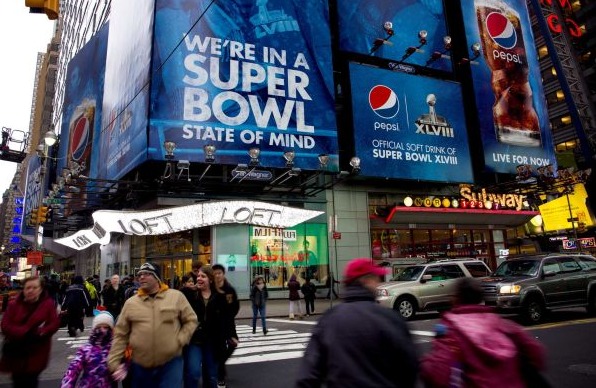 NEIL deMAUSE, neil at demause.net, @neildemause
NEIL deMAUSE, neil at demause.net, @neildemause
Neil deMause runs the stadium news website Field of Schemes, and co-authored the book of the same name. He wrote the piece “It’s the Local Economy, Stupid!” for Sports on Earth.
His most recent piece is “The Super Bowl Windfall Myth” for FAIR, which states: “With Super Bowl Sunday approaching, expect plenty of media reports on the projected economic windfall for host city Glendale, Arizona. Last year, when the NFL announced that its big game would provide a $600 million boost to the New York/New Jersey economy, that figure promptly became a fixture in news coverage of the event (CNN, 1/24/14; Newsday, 1/22/14; FoxNews.com, 5/21/14). …
“Never mind that numerous economists have looked in vain for any evidence that Super Bowl host cities strike it rich. In one study, Holy Cross economist Victor Matheson (12/09) calculated that through 2001, the average increase in economic activity during each Super Bowl was about $30 million. Lake Forest College economist Robert Baade has found similar numbers, telling the Associated Press (1/27/14) that you could ‘move the decimal point one place to the left’ on the NFL’s claims and still have ‘a generous appraisal of what the Super Bowl generates.’
“And that’s economic activity, the total amount of money changing hands within city limits — not the amount that comes back to city coffers. When University of Maryland economist Dennis Coates (International Journal of Sport Finance, 2006) studied the 2004 Super Bowl, he found that added sales tax revenues in host Houston totaled about $5 million — well under the $30 million to $70 million that cities spend on increased police presence and other services for the game (USA Today, 1/25/15).
“Economists have provided similarly dismal results for other sporting events, with major sporting events failing to make a dent in everything from local sales tax receipts to per capita income. (One study of sports strikes and lockouts failed to find any measurable impact on local economies even when local teams shut down entirely.) The most likely explanation: Increased spending on sports is largely balanced by reduced spending on other entertainment options, and even new spending quickly leaks out of the local economy into the pockets of out-of-town sports leagues.”
See deMause’s full piece for a list of examples.